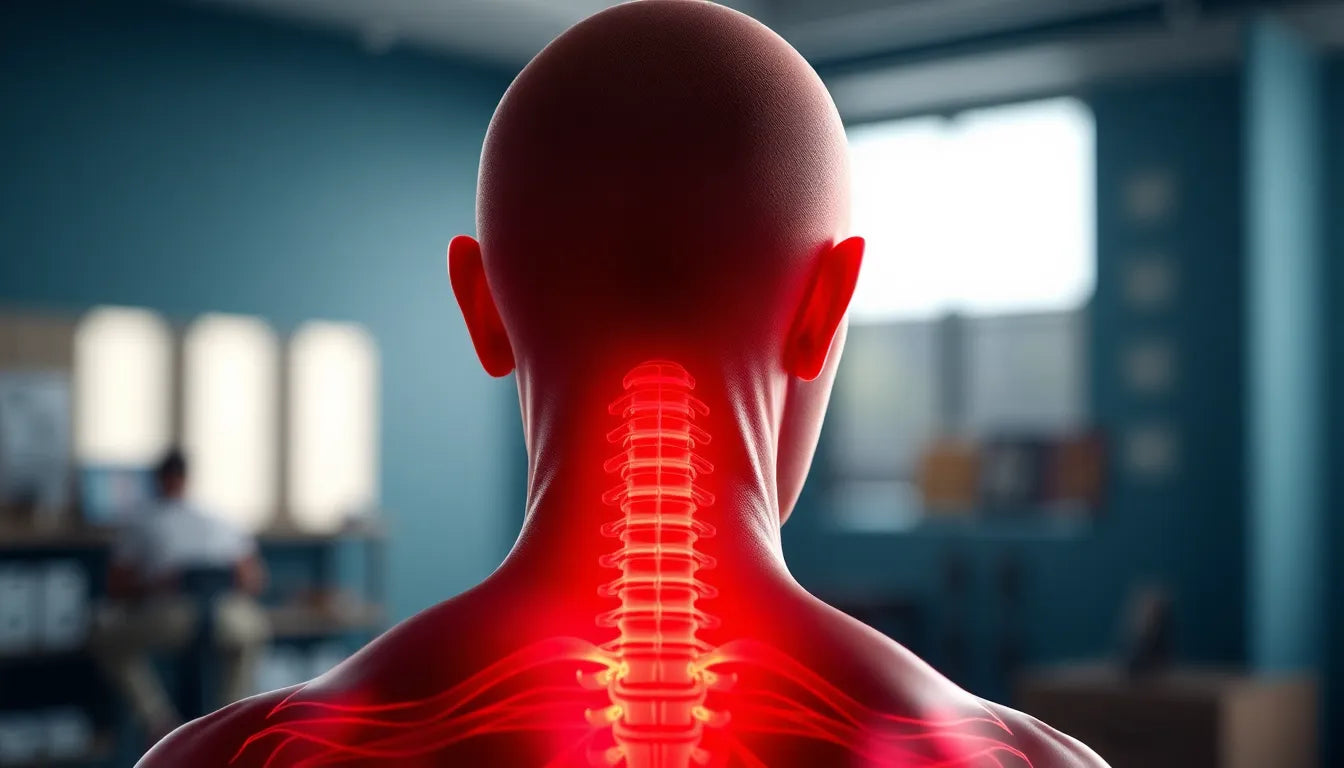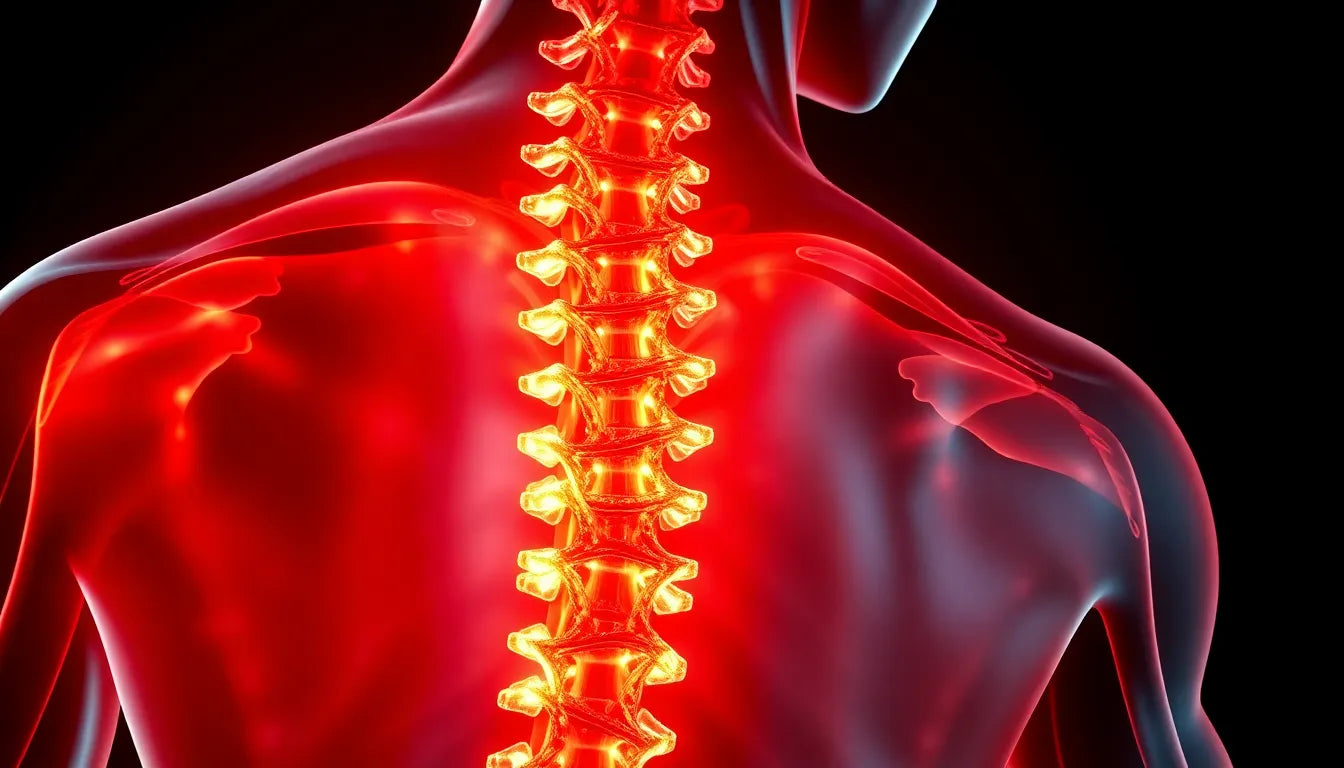Herniated discs are a common condition that can cause significant discomfort and impact daily life. A herniated disc occurs when the soft, gel-like center of a spinal disc pushes through a tear in the tougher exterior. This can lead to pain, numbness, and weakness, particularly in the back, neck, arms, or legs, depending on the location of the herniation. Common causes include age-related wear and tear, sudden heavy lifting, or even a traumatic injury.
For those suffering from herniated discs, finding effective treatment is a top priority. Chiropractic care has emerged as a popular non-surgical treatment option for managing back pain, including issues related to herniated discs. Chiropractors use manual adjustments and other techniques to improve spinal alignment and potentially alleviate pain associated with spinal conditions.
The debate: help or harm?
The question of whether chiropractic care can help or worsen a herniated disc is a subject of ongoing debate. Within both the medical and chiropractic communities, opinions vary regarding the safety and efficacy of chiropractic interventions for herniated discs. Some argue that chiropractic care, when performed correctly, can provide relief from the pain and discomfort associated with herniated discs. Others, however, caution against the potential risks, suggesting that certain manipulations could exacerbate the condition.
This debate underscores the importance of understanding the specific nature of a herniated disc and the individual needs of the patient. While some studies suggest that chiropractic care does not pose an excess risk compared to other forms of primary care, there are rare instances where complications can arise. These complications might include increased pain or nerve damage, particularly with manipulations involving the cervical spine.
As we delve deeper into the nuances of this topic, it's crucial to weigh the potential benefits against the risks. The decision to pursue chiropractic care should be made with careful consideration and in consultation with healthcare professionals who can provide a comprehensive evaluation of the condition.
Understanding the risks of chiropractic care for herniated discs
When considering chiropractic care for herniated discs, it's important to understand the potential risks involved. While many patients find relief through chiropractic adjustments, there are cases where the treatment can lead to complications. A population-based study suggests that there is no excess risk of worsening herniated discs with chiropractic care compared to primary care. However, this does not eliminate the possibility of adverse effects, particularly in certain situations.
Rare but serious complications can occur, such as nerve damage or increased pain, especially with manipulations of the cervical spine. These risks are more pronounced in patients with specific conditions, such as extruded or sequestered discs, spinal cord compression, or existing nerve damage. In such cases, chiropractic adjustments may be contraindicated, and alternative treatment options should be considered.
Chiropractic care and safety measures
To minimize risks, chiropractors employ careful patient screening and specialized techniques. This involves using imaging and neurological assessments to determine a patient's suitability for chiropractic care. By identifying the specific characteristics of a herniated disc and understanding the patient's overall health, chiropractors can tailor their approach to ensure safety and effectiveness.
Proponents of chiropractic care argue that, when performed cautiously, it can alleviate discomfort without the need for surgery or medications. Techniques such as manual adjustments, traction therapy, and spinal decompression are used to relieve pressure on the affected nerves and improve spinal alignment. These methods can provide significant pain relief and improve mobility for many patients.
Comparative analysis of treatment options
When evaluating treatment options for herniated discs, it's helpful to compare chiropractic care with other available therapies. Each approach has its own set of benefits and risks, and the choice of treatment should be based on the individual's specific condition and preferences.
| Treatment Option | Benefits | Risks |
|---|---|---|
| Chiropractic Care | Manual adjustments, potential pain relief | Risk of complications, especially with improper technique |
| Physical Therapy | Exercise-based, improves mobility and strength | Low risk, may require a longer commitment |
| Medical Management | Pain relief medications, anti-inflammatories | Potential side effects from medications |
| Surgical Options | Effective in severe cases | Invasive, risk of complications |
Physical therapy is often recommended as a low-risk treatment that focuses on exercises to improve strength and flexibility. Medical management can provide temporary pain relief through medications, but it may not address the underlying issue. In severe cases, surgery might be necessary to remove or repair the damaged disc, but this comes with its own set of risks and recovery time.
Ultimately, the decision to pursue chiropractic care or any other treatment should be made in consultation with healthcare professionals. A thorough evaluation of the herniated disc, along with consideration of the patient's overall health and preferences, is crucial in determining the most appropriate course of action.
Balancing risks and benefits of chiropractic care for herniated discs
When considering chiropractic care for herniated discs, it's essential to weigh both the potential benefits and risks. Chiropractic care can offer relief through manual adjustments and other techniques aimed at improving spinal alignment. However, the decision to pursue this treatment should be made with careful consideration of individual circumstances and in consultation with healthcare professionals.
Individualized treatment plans are crucial in managing herniated disc symptoms effectively. A multidisciplinary approach often yields the best results, combining chiropractic care with other non-surgical treatments such as physical therapy and medical management. This holistic strategy ensures that patients receive comprehensive care tailored to their specific needs, potentially reducing pain and improving overall function.
Clarifying common misconceptions about chiropractic care
There are several misconceptions surrounding chiropractic care for herniated discs that need clarification. One common myth is that chiropractic care can "cure" a herniated disc. While chiropractic adjustments may provide symptom relief, they do not address the underlying structural issues of the disc itself. It's important for patients to have realistic expectations and understand that chiropractic care is a part of a broader treatment strategy.
Another misconception is that all herniated disc cases are suitable for chiropractic manipulation. In reality, certain conditions, such as extruded or sequestered discs and spinal cord compression, may contraindicate chiropractic adjustments. Patients should undergo thorough imaging and neurological assessments to determine their suitability for chiropractic care.
Open communication between patients and healthcare providers is vital to ensure informed decision-making. Patients should feel comfortable discussing their symptoms, concerns, and treatment options with their healthcare team to develop a plan that aligns with their health goals.
Frequently asked questions
Can chiropractic care worsen a herniated disc?
While there are risks associated with chiropractic care, proper screening and technique can minimize them. Patients with severe cases or specific complications should avoid spinal manipulation and seek alternative treatments.
What should I consider before opting for chiropractic care?
Before pursuing chiropractic care, ensure that you have undergone thorough imaging and neurological assessments. Consult with medical professionals to discuss all available treatment options and determine the best approach for your condition.
Are there safer alternatives to chiropractic care for herniated discs?
Yes, there are several alternatives, including physical therapy, medical management with pain relief medications, and in some cases, surgical intervention. Each option has its own benefits and risks, and the choice should be based on individual needs and medical advice.
How can I manage herniated disc symptoms at home?
At-home management strategies include ergonomic adjustments, gentle exercises to improve flexibility and strength, and lifestyle modifications to reduce strain on the spine. These measures can help alleviate discomfort and improve quality of life.
When should I seek medical attention for a herniated disc?
If you experience progressive neurological symptoms, such as weakness or numbness in the limbs, or severe pain that does not improve with conservative measures, seek immediate medical evaluation. Early intervention can prevent further complications and improve outcomes.
In conclusion, chiropractic care can be a valuable component of a comprehensive treatment plan for herniated discs when used appropriately. By understanding the risks, benefits, and alternative options, patients can make informed decisions to manage their symptoms effectively.
Sources
- "Chiropractic care and risk for acute lumbar disc herniation." PubMed.
- "Herniated Disc Chiropractor: Downsides And Alternatives." Deuk Spine.
- "Is Chiropractic Safe for Herniated Discs?" Living Vital Life.
- "Herniated Disc in the Neck Chiropractic Treatment – The Dangers." YouTube - Dr. Lou Bisogni.
- "5 Benefits of Seeking Chiropractic Care for Herniated Disc Pain." AccidentCare Chiropractic.
- "Chiropractic Care and Risk for Acute Lumbar Disc Herniation." ACA Research Review.


















